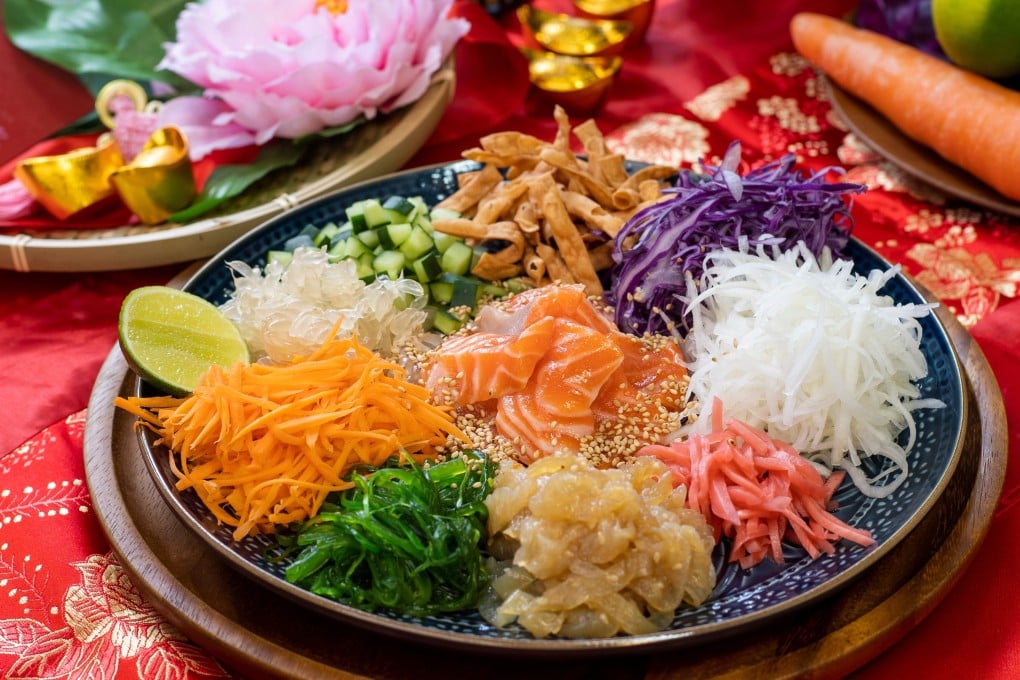The ‘quiet luxury’ trend in Chinese dining: how showy ingredients like bird’s nest are out with young epicures, who eat without breaking the bank
- Many Chinese dishes represent hopes for prosperity and are often made with extravagant ingredients from abalone to shark fin. But it doesn’t have to be this way
- Like Rolexes, ostentatious food is falling out of favour with the young generation, who embrace cheaper, sustainable and sometimes plant-based alternatives

I am in the midst of a rainbow downpour. All around me, diners are gleefully flinging finely chopped salad and strips of salmon with their chopsticks.
“Huat ah! Huat ah!” we shout, as a shard of crispy spring roll wrapper hits me in the face. We drop our food from ever higher heights, sesame seeds scattering everywhere.
We are partaking in the interactive Lunar New Year tradition of yusheng – also known as yee sang, lo hei or prosperity toss salad – a dish that originated in Malaysia and Singapore and has been popularised in recent years via social media.
The salad might seem like a random compilation of ingredients, but each component represents a desire for the year ahead. You see, the Chinese are obsessed with eating to manifest wealth just like the British drink for … well, just like the British drink, full stop.

Our consumption habits have always skewed towards accumulation, and this shows up as much in our choice of material goods as it does on the plate – or off the plate, as it was in the case of the flying “gold” cracker.
